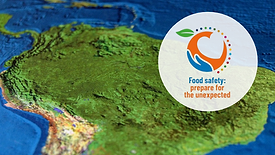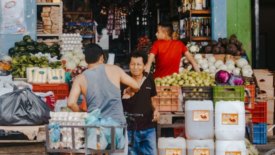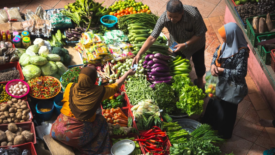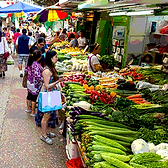Home » Keywords: » informal markets
Items Tagged with 'informal markets'
ARTICLES
World Food Safety Day Exclusive: 'Food Safety is an Essential Part of Our Daily Lives'
A Q&A with Ana Maria Coronado, M.B.A., International Food Safety Expert and Consultant, Peru
June 7, 2024
Never miss the latest news and trends driving the food safety industry
eNewsletter | Website | eMagazine
JOIN TODAY!Copyright ©2025. All Rights Reserved BNP Media.
Design, CMS, Hosting & Web Development :: ePublishing









